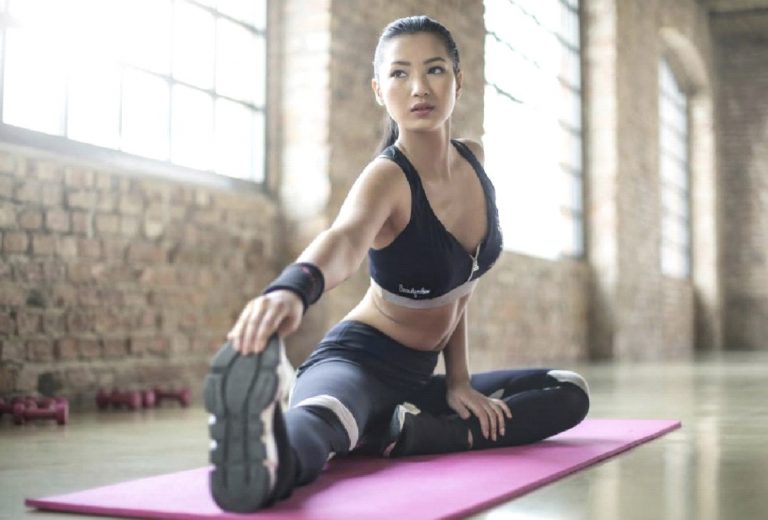When it comes to fitness, most women focus on the visible stuff: gym plans, macros, supplements. But it’s the quieter habits—the things you do when no one’s watching—that often decide whether your body thrives or crashes.
So, let’s take you through the performance-boosting, hormone-balancing, mentally sustaining habits that actually make your fitness goals stick. Here’s what the fittest, most consistent women are doing behind the scenes.
Story Stages
1. Train Around Your Cycle—Not Through It

Most mainstream fitness advice completely ignores female hormones. But if you’ve ever wondered why your energy crashes mid-month or why some workouts feel impossible the week before your period, you’re not imagining things.
Your menstrual cycle has four phases, and your body responds very differently in each one:
Follicular (Days 1–13): Estrogen rises. You’re stronger, sharper, and recover faster. Best time for strength training and HIIT.
Ovulation (Day 14): Peak energy. Great for pushing PBs or trying new movements.
Luteal (Days 15–28): Progesterone rises. Fatigue increases. Switch to lower impact: Pilates, resistance bands, mobility.
Menstrual (Day 1–5): Recovery mode. Gentle movement or rest is ideal.
Try this: Sync your workout plan with your cycle for four weeks and track how your mood, strength, and recovery change. It’s not about doing less—it’s about doing better at the right time.
2. Calm Your Nervous System

Stress may be doing more damage than you think. Chronically elevated cortisol can ruin your gains, mess with hunger cues, spike inflammation, and drain motivation. And yes, even that 6am HIIT class can sometimes do more harm than good if you’re already fried.
If you feel:
- Wired but tired
- Craving sugar post-workout
- Constantly sore
- Struggling to sleep
…then your sympathetic nervous system (fight-or-flight mode) may be dominating.
What helps? Regulating your parasympathetic nervous system—aka rest-digest-repair mode. Breathwork, cold exposure, even 10 minutes of lying flat with legs up the wall can reset stress hormones and speed up muscle recovery. Another great tip is to end your workouts with a 60-second cold water rinse in the shower and three minutes of nasal breathing.
“I finish every session with a freezing rinse in the shower and four minutes of slow breathing,” says Ruby, one of the many London escorts who train regularly to maintain their physique. “It used to feel like torture, but now it’s the bit that keeps me from crashing. Plus, my sleep is a hundred times better.”
3. Regulate Through Your Senses

You can’t outthink a dysregulated body. If your nervous system is fried, anxious, or stuck in freeze mode, no motivational quote or green smoothie will fix it. What can help? Grounding through your senses.
Smell, sound, and touch aren’t just indulgent—they’re functional tools. Studies show that activating the senses reduces cortisol and improves focus, mood, and even strength output. (Yes, your bath salts might actually make you stronger.)
Try lighting a specific candle before every gym session. Use a grounding playlist after training. Keep a textured grip ball nearby during work hours. Before your next workout, take 90 seconds to stimulate all five senses:
- Peppermint oil under your nose
- A few sips of ice-cold water
- Loud music or nature sounds
- A textured object in your hand
- 10 seconds of slow breathing
4. Stop Obsessing Over Macros

Yes, tracking calories can help some people—but for many women, it leads to chronic stress and disordered eating. What often matters more than the perfect macro split is how and why you eat.
Are you snacking when you’re lonely? Bingeing after days of restriction? Undereating because you’re ‘being good’?
Start tracking patterns, not just portions. Try this: For one week, skip calorie tracking and just write down:
- What you ate
- When you ate it
- How you felt before and after
You’ll spot triggers faster than any macro app will tell you.
5. Find a Stronger Why Than Just ‘Losing Weight’

The most successful fitness routines aren’t built around weight loss—they’re built around meaning. If your only goal is to drop two dress sizes, your motivation will crash as soon as you plateau or get distracted.
Instead, aim for reasons that actually light you up:
- “I want to feel stronger holding a plank than I do holding in my stomach.”
- “I want my daughter to see strength as normal, not extreme.”
- “I want to sleep better and stop resenting my body.”
That’s what keeps people going—not six-pack pressure or TikTok body trends.
Try this: Every morning, write one sentence that reminds you why you move. Not for guilt. Not for likes. For you.
Give Your Body the Self-Care It Deserves
True self-care isn’t bubble baths or punishing workouts—it’s about working with your body, not against it. Fitness gets easier when your hormones, your habits, and your headspace are on your side.
The best part? You don’t have to do everything at once. Try syncing your workouts to your cycle. Or stop punishing yourself for the weekend wine. Small shifts add up—and in a few months, you’ll wonder how you ever trained without them.
